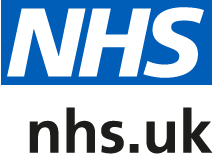Oak Vale Medical Centre
The Fiveways Centre, 215 Childwall Road, Liverpool, L15 6UT
Telephone: 0151 295 9330
Sorry, we're closed

Coffee With Mates – Oak Vale Patient Coffee Mornings NHS Equality campaign launched during Disability Pride Month How would you prepare for an emergency? The Life Rooms – Thursday 18th July Armed Forces Week 2024 iGPc – Saturday Smear clinics Junior Doctor Strikes Carers Week 2024 – Event Thursday 13th June Active Soles: Changing the way we think about workwear to promote physical activity in Cheshire and Merseyside North West man transforms mental health using exercise
Signs of respiratory illnesses in children and when to get help

Health experts locally are urging parents and carers to be aware of the signs of respiratory illnesses in children with cases higher than usual for this time of year and further increases expected over the winter months.
Respiratory Syncytial Virus (RSV) is a common virus that causes coughs and colds in winter and is the most common cause of bronchiolitis in children under two. In the UK, the RSV season typically begins in the autumn – earlier than the adult flu season – and runs throughout the winter. However, this year we are now seeing this presenting in children much sooner.
Most cases will not be serious, and often the child can be cared for at home with simple measures such as paracetamol, rest and plenty of fluids.
Common symptoms of bronchiolitis are runny nose, a rasping, dry cough, mild increase in temperature. You may also notice them feeding less and making more effort in their breathing.
Most cases will resolve on their own within two to three weeks, but parents should contact their GP or call NHS 111 if:
- Their child struggles to breathe
- Their child has taken less than half their usual amount during the last two or three feeds, or they have had a dry nappy for 12 hours or more
- The child has a persistent high temperature of 37.8C or above
Children under two months of age, those born prematurely and those with underlying health conditions, such as a heart condition, are a higher risk of severe bronchiolitis and parents should consider accessing health advice earlier.
Parents and carers are also advised to dial 999 for an ambulance if:
- Your baby is having difficulty breathing
- Your baby’s tongue or lips are blue
- There are long pauses in your baby’s breathing
There are simple steps you can take to reduce the spread of all viruses:
- Use tissues to catch coughs or sneezes, bin the used tissues as soon as possible and wash your hands with soap and warm water to kill the germs.
- Children with flu or bronchiolitis symptoms should stay home and reduce contacts where possible.
- Particularly avoid close contact with newborn babies, infants born prematurely (before 37 weeks), children under 2 born with heart or lung conditions, and those with weakened immune systems.
Find out more about the symptoms of bronchiolitis and what to do on the NHS website: www.nhs.uk/conditions/bronchiolitis and children’s health in general here: what0-18.nhs.uk/
You can view a video of Dr Anne Kerr, ED consultant at Alder Hey Children’s NHS Foundation Trust talking about RSV here: youtu.be/3wfMJclHjVM
Content provided by NHS Liverpool Clinical Commissioning Group (CCG). For more information, please visit www.liverpoolccg.nhs.uk.
Published on Tue, 17 Aug 2021 12:14:58 GMT
Modified on Tue, 17 Aug 2021 12:15:30 GMT
Opening Times
- Monday
08:00am to 06:30pm - Tuesday
08:00am to 06:30pm - Wednesday
08:00am to 12:30pm
01:30pm to 06:30pm - Thursday
08:00am to 06:30pm
Last Thursday of month closed at 1pm - Friday
08:00am to 06:30pm - Saturday
CLOSED - Sunday
CLOSED
Liverpool CCG News
NHS Equality campaign launched during Disability Pride Month
NHS Cheshire and Merseyside is raising awareness of the importance of fully accessible health services for patients across the region with sensory disabilities or other communication needs.
How would you prepare for an emergency?
Emergencies such as flooding, fires and power cuts can affect us all. There are simple and effective steps you can take to be more prepared.
Armed Forces Week 2024
Armed Forces Week is a chance to show our support for the men, women and children who make up the Armed Forces community
Active Soles: Changing the way we think about workwear to promote physical activity in Cheshire and Merseyside
Active Soles is a movement to change the way we think about workwear, based on the belief that active workplaces lead to happier, healthier people which in turn leads to greater creativity, better problem solving and improved productivity.
North West man transforms mental health using exercise
Mental Health Awareness Week 2024 takes place 13–19 May, and this year’s theme is ‘Movement: Moving more for our mental health’.





